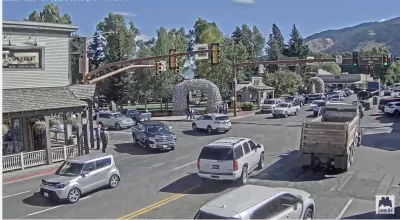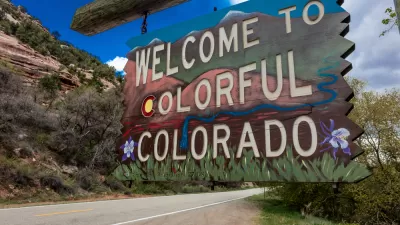The story of Jackson Hole, Wyoming, illustrates the class tensions that arise when an idealized vision of life close to nature butts up against the realities of wealth, privilege, and social inequality.

Billionaire Wilderness is new book by Yale sociologist Justin Farrell that examines the extreme inequality in Teton County in Wyoming, the county with the highest per capita income in the United States.
People are drawn to the area because of its access to spectacular open spaces, but the bulk of land in the county, 97 percent, is public land, leaving small tracts available for development. The tourism industry has also resulted in a large number of low-paid service workers not able to live in Jackson Hole, where many of these jobs are located.
The reasons behind the income inequality in Teton County are varied. For one, Wyoming does not have income tax and property taxes are low, a draw for wealthy individuals from other states. And while philanthropy by the area’s well-off residents is robust, those donations tend to go to arts and conservation causes.
"That is a particular dilemma in Wyoming, where minimal taxes mean the state has extremely limited public funds. Private donations bankroll a lot of services in the county, such as housing assistance or mental-health counseling ('buzzkill issues,' as Farrell puts it)," writes Heather Hansman.
Through a series of interviews, Farrell discovers that the area’s wealthy seem largely unaware of the class discrepancies around them and the struggles of the people behind the tourism industry.
"After outlining the conflicting interests between conservation and growth, affordable housing and preservation, Farrell concludes that we can’t have it all. This has always been a region that was developed according to the interests of the ultrarich, and it’s becoming more apparent who really gets to live out a western fantasy," says Hansman.
FULL STORY: America's Richest Mountain Town Is Its Most Unequal

Alabama: Trump Terminates Settlements for Black Communities Harmed By Raw Sewage
Trump deemed the landmark civil rights agreement “illegal DEI and environmental justice policy.”

Planetizen Federal Action Tracker
A weekly monitor of how Trump’s orders and actions are impacting planners and planning in America.

The 120 Year Old Tiny Home Villages That Sheltered San Francisco’s Earthquake Refugees
More than a century ago, San Francisco mobilized to house thousands of residents displaced by the 1906 earthquake. Could their strategy offer a model for the present?

In Both Crashes and Crime, Public Transportation is Far Safer than Driving
Contrary to popular assumptions, public transportation has far lower crash and crime rates than automobile travel. For safer communities, improve and encourage transit travel.

Report: Zoning Reforms Should Complement Nashville’s Ambitious Transit Plan
Without reform, restrictive zoning codes will limit the impact of the city’s planned transit expansion and could exclude some of the residents who depend on transit the most.

Judge Orders Release of Frozen IRA, IIJA Funding
The decision is a victory for environmental groups who charged that freezing funds for critical infrastructure and disaster response programs caused “real and irreparable harm” to communities.
Urban Design for Planners 1: Software Tools
This six-course series explores essential urban design concepts using open source software and equips planners with the tools they need to participate fully in the urban design process.
Planning for Universal Design
Learn the tools for implementing Universal Design in planning regulations.
Clanton & Associates, Inc.
Jessamine County Fiscal Court
Institute for Housing and Urban Development Studies (IHS)
City of Grandview
Harvard GSD Executive Education
Toledo-Lucas County Plan Commissions
Salt Lake City
NYU Wagner Graduate School of Public Service





























